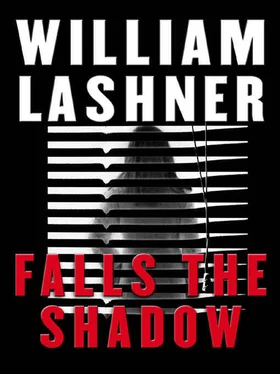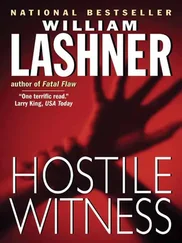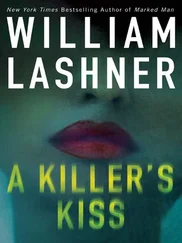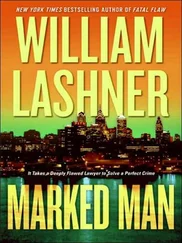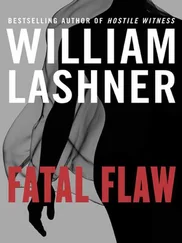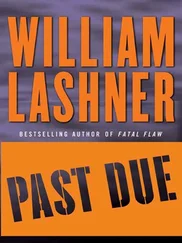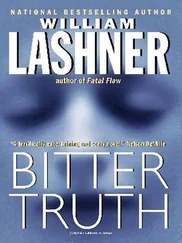The man who came in was painfully thin, with dark, sunken eyes and a scraggly beard. He was wearing jeans and a T-shirt, a blue baseball cap. When he saw Beth and me, in our suits, sitting with Father Kenneth, he took off his baseball cap and clutched it with both hands, tucking his jaw in to his shoulder at the same time. He looked like a boxer on shaky legs, awaiting the knockout blow.
“Wayne,” said Father Kenneth, “these people are lawyers and want to ask you a few questions.”
“I didn’t do nothing.”
“We know that, son. Why don’t you close the door behind you and take a seat.”
Wayne Harbaugh glanced uneasily at us before shutting the door and sitting on the edge of one of the chairs, still clutching his hat.
“Wayne,” said the father, “they want to know about Seamus.”
“What about him?”
“He testified at the trial of a man accused of murdering his wife,” I said. “Do you remember that?”
Wayne looked even more uneasy, if that was possible. “Yeah,” he said. “I remember. He told me about it.”
“What did he tell you?”
“Just that lawyers made him nervous.”
“Like we make you nervous?”
“Sort of.”
“I wonder, Wayne, if you could just tell us a little about Seamus. Was he basically honest, dishonest? Did he tell the truth most of the time?”
“Go ahead, Wayne,” said Father Kenneth. “Tell Mr. Carl if Seamus told the truth most of the time.”
“I suppose he did,” said Wayne, “but not when it counted.”
I sat forward, glanced at Beth, who looked back with wide eyes.
“What do you mean?” I said.
“When it counted most, he was the biggest liar there ever was.”
“Wayne?” said Father Kenneth. “He was your friend, son. Your oldest friend.”
“But he said we was in it together, and that was a lie, wasn’t it, Father Ken? He betrayed you, didn’t he, by getting back in it? And he betrayed me just the same.”
“Why don’t you tell us about it, Wayne?” I said.
“From when?”
“From the start,” I said.
He looked at Father Kenneth, who stared at him closely for a moment and then nodded.
“Then I’ll have to talk about her,” said Wayne.
“Go ahead, son,” said the father.
Wayne closed his eyes and paused for a moment, and when his voice came out, it was stronger now, younger. “Because it was really about her, all about her,” he said. “Everything was always all about Kylie.”
And then he told his story, hesitant at first, later less so, as if there was some compulsion to get it off his soul. As he sat in the vestry, with Father Kenneth nodding, it flowed out almost like a confession. And to tell you the truth, I wasn’t surprised to hear Kylie’s name arise like a specter to haunt the dramatic twists and turns of Wayne Harbaugh’s story. I had heard what the witches on the stoop said of her, I had met her mother. I didn’t yet know the role she would play, Kylie, sweet Kylie, but I sensed from the start that whatever had happened to Wayne and Seamus, she was in the middle of it.
But there was someone else involved in the story, too, haunting the edges, shaping the outcome like a demented director with his clapboard and megaphone. I didn’t yet recognize him there. How could I? My first meeting with him was still in the future. But there he was. Look close as the tale unfolds. Do you see him? Do you see Bob?
His earliest memories were of the three of them, running through the streets, the alleyways, playing hand games during church, rock paper scissors, the slap of Seamus’s two fingers on his wrist during the homilies, the feel of Kylie’s whisper in his ear as she plotted some daring piece of mischief. His mother surely suckled him, his father surely beat him, his sisters surely teased him and tickled him till he cried, but his family was something he suffered through until he could be with his friends. It was Seamus, Kylie, and Wayne, the three of them, always and forever, the trio at the heart of his life.
And he remembered, too, when they first discovered the old textile plant on the other side of the railroad tracks, in the shadow of the highway. As second-graders, they found that the plywood on one low window was shattered enough to climb through, and they spun around on the filthy factory floor, spinning in freedom with their arms stretched wide, until they were dizzy and collapsed laughing.
“Don’t tell anyone,” said Kylie. “This will be ours.”
“Our secret fort,” said Wayne.
And Seamus nodded, and Kylie laughed, and so they laid claim to the dank old place, and it became more home to them than their homes. Clubhouse, playground, sanctuary. The fort. The roof had collapsed, letting in, along with the pigeons, sufficient daylight so they could see comfortably during the day and allowing the smoke from their fires to rise out at night. And this is where they went, the three of them, Seamus, Kylie, and Wayne, to laugh, to play games, to tell stories, to smoke cigarettes when they were older, to drink beer and blow dope when they were older still.
Wayne was the wiry one, the funny one, quick with the joke or the rib. Seamus was bigger, yet meeker, less physical, more sensitive. Ashamed of his teeth, he would never smile, and with the dark beneath his eyes, he always appeared on the verge of tears. Kylie was the spark, pretty and slight. With her dark hair and darker eyes, she was the one with the ideas, the one who could make things happen, a girl full of fun and guile, able to look like the sweetest, most innocent thing on the outside while full of troubling schemes on the inside. And she liked to steal, shivered at the thrill.
She was the one who started them on shoplifting at the corner store, getting Wayne and Seamus to divert the old storekeeper while she stuffed cupcakes and candy down her skirt. And she was the one who started them on stealing bicycles from any kids who happened to leave them lying around unlocked. There were a dozen bicycles, useless and rusting, their tires flat, their bars covered in pigeon dung, leaning against the walls of the fort, a futuristic sculpture of decay. And she was the one who convinced Seamus to stand like a ladder before the open windows of empty houses so she and Wayne could slip in at night or during the shank of the afternoon to grab anything they found lying around. That’s how Seamus got the guitar he played incessantly back at the fort, how Wayne got the leather jacket that was way too big for him, how Kylie got hold of her first pack of cigarettes, swiping a whole carton from a kitchen on Palmer Street.
You could tell she was troubled, Kylie, the way she never ate and got all scrawny, the way she came to the fort with scabs up and down her arms. The first time, she said it was an accident, and after that first time they didn’t talk about it anymore. And you could see the need in her in the way she smoked her cigarettes. Once they got that first pack, and she felt the nicotine rush flow through her like a gift, she was obsessed with getting them, lighting them, smoking them. She inhaled so furiously it was as if she wanted to turn her whole body into ash. There was always a cigarette between her fingers, and she was always scrounging around for another one, and she always needed money to buy them, always.
Then, when they started with the beer, stealing first a couple bottles from Wayne’s father, it wasn’t long before Kylie, her eyes rimmed dark with mascara, was waiting in front of the Chinese take-out place, asking the male customers if they’d take her money and buy her a six-pack. Kylie liked to drink, she drank fast – while they were still cold, she said – and often until she got sick. One corner of the fort, next to the bikes, held a veritable mountain of cans and bottles.
Читать дальше
